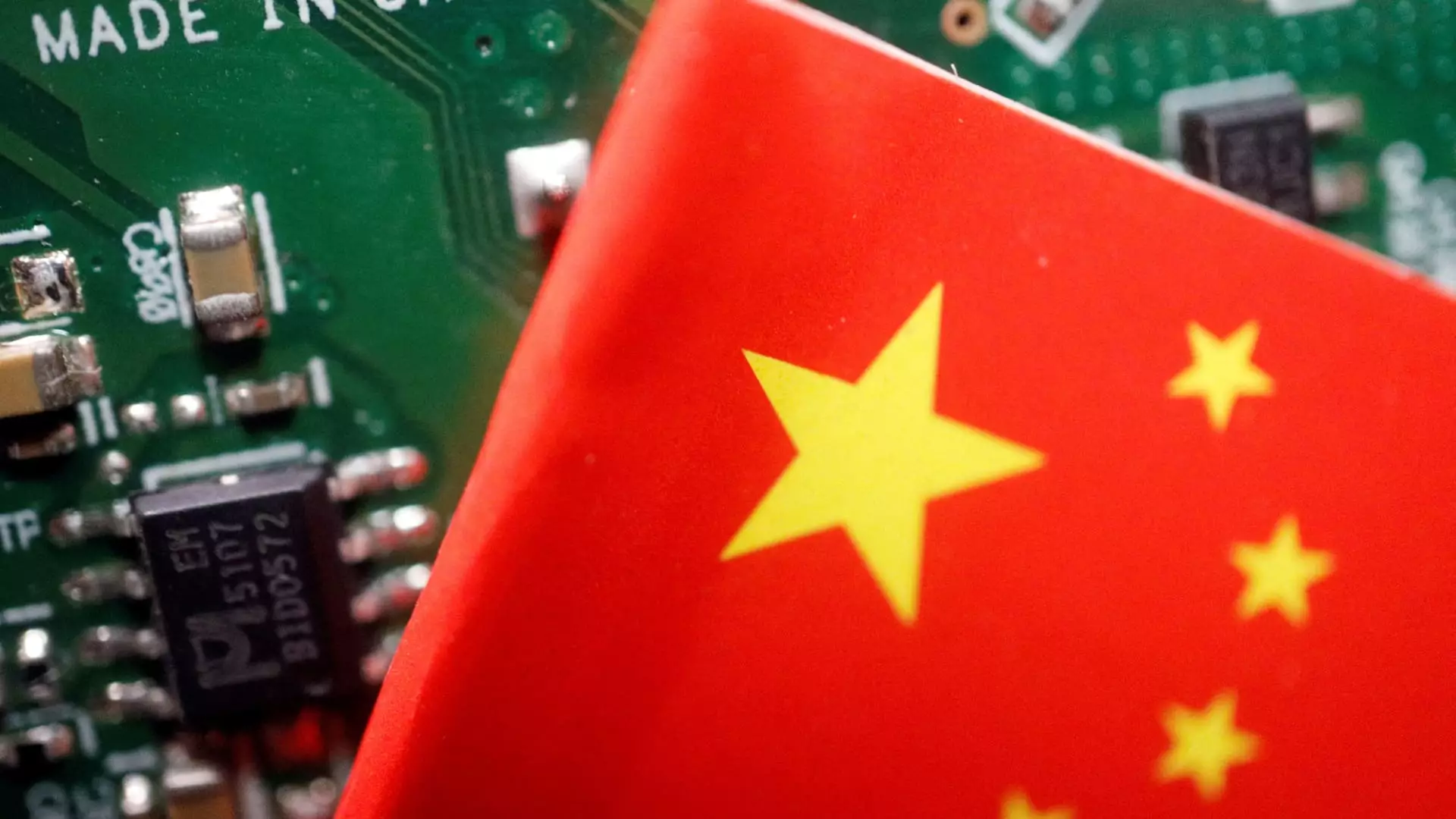The landscape of global semiconductor stocks, particularly across Asia, has experienced a notable reaction following the introduction of new U.S. export restrictions targeting China. Despite the complexities and potential implications of these sanctions, many major chip manufacturers in Asia have shown resilience, reflecting investor confidence and varied market dynamics. This article examines the recent trends influenced by U.S. policies, the responses from key players in the market, and the broader ramifications for the semiconductor industry.
On a recent Tuesday, a significant uptick in the stock prices of major Asian semiconductor companies, barring those based in China, indicated a collective bullish sentiment amongst investors. The Taiwan Semiconductor Manufacturing Company (TSMC), which proudly holds the title of the world’s largest contract chip supplier, saw its shares soar by 2.4%. This growth reflects not only the robust demand for its advanced chip manufacturing capabilities but also an underlying confidence that major chip makers can navigate around U.S. sanctions effectively.
In Japan, various semiconductor stocks registered impressive gains, highlighting a regional resilience in the face of external pressures. Tokyo Electron rose by an impressive 4.7%, while peers like Lasertec and Advantest enjoyed gains of 6.7% and 3.9%, respectively. This phenomenon underscores the unique position of Japanese technology firms, particularly during times of uncertainty, as they continue to play an integral role in the global semiconductor supply chain.
Recently announced by the U.S. Department of Commerce, the new export restrictions look to impair China’s access to advanced chip production technologies, impacting a range of companies including well-established entities like SK Hynix and Samsung Electronics. While the intention behind these measures aims to limit China’s military advancements through cutting-edge chip technologies, their actual impact on these South Korean firms appears to be muted, at least in the short term.
Derrick Irwin, a portfolio manager at Allspring Global Investments, conveyed a tempered outlook regarding the ramifications of high-bandwidth memory chip restrictions. The belief that sales into China represent a small portion of these companies’ revenues suggests that strategic pivoting to alternate markets may help mitigate potential downturns. As such, this adaptability could reassure investors regarding the long-term viability of these firms amid escalating trade tensions.
As expected, the fallout from the U.S. export restrictions was felt acutely within Chinese semiconductor stocks. Companies like Naura Technology Group, Piotech, and ACM Research all saw fluctuations in their stock prices, with Naura and ACM experiencing declines of 3% and 1%, respectively. Conversely, Piotech observed a slight uptick of 1%, providing a glimmer of hope amidst the uncertainty.
The repercussions of these restrictions extend beyond immediate stock price movements; they potentially inhibit China’s capability to innovate and scale its domestic semiconductor production. Semiconductor Manufacturing International Corporation (SMIC), China’s leading chipmaker, also faced challenges and saw its shares dip by 1.5% in Hong Kong trading. This situation reiterates the need for Chinese companies to recalibrate amidst tightening U.S. policies, potentially driving accelerated efforts toward self-sufficiency.
U.S. Secretary of Commerce Gina Raimondo emphasized that these export controls represent a concerted strategic maneuver by the Biden administration to inhibit China’s advance in high-tech sectors that are pivotal to national security. The introduction of additional restrictions on manufacturing equipment and software tools utilized in semiconductor development highlights the evolving nature of international trade relations, particularly in the tech sector.
Critics of these measures have raised concerns regarding their efficacy, especially in light of prior instances where advanced chips manufactured by TSMC were discovered in Huawei products. The implications of such discoveries cast a shadow on the effectiveness of export controls, indicating a potential loophole that could be exploited by determined entities.
The semiconductor industry stands at a critical juncture shaped by geopolitical tensions and shifting market conditions. The resilience displayed by major Asian chip manufacturers highlights their strategic importance in a globalized economy, while the long-term impacts of U.S. export restrictions will likely continue to ripple across the industry. As these dynamics unfold, stakeholders must remain vigilant and adaptive to capitalize on emerging opportunities while navigating potential challenges.

